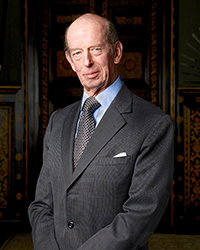Since being established in 1957, BCS has celebrated several of its own jubilees – but that’s not our only royal connection.
Our purpose as a charity is rooted in our royal charter: ‘To promote and advance the education and practice of computing for the benefit of the public.’
Our royal charter, which we’ve held for nearly 40 years, defines our purpose of setting and maintaining standards of competence, conduct and ethical practice within the IT profession.
It means we're responsible for ensuring technology shapes a safe and positive future for everyone. Our commitment is not just to the people working in the industry but to society as a whole.
...but what exactly is a royal charter and what does chartered status mean for BCS?
What is a royal charter?
Royal charters have been issued since the thirteenth century to establish significant organisations and learned societies. As the Privy Council explains,
‘A royal charter is an instrument of incorporation, granted by The Queen, which confers independent legal personality on an organisation and defines its objectives, constitution and powers to govern its own affairs.’
Nowadays, organisations working in the public interest (like professional institutions and charities) who can demonstrate ‘pre-eminence, stability and permanence’ in their field may seek chartered status. Gaining chartered status is considered as prestigious and ‘reflects the high status of that body’.
The BCS royal charter recognises our organisation as an independent professional body and grants us the power to award chartered status to information technology professionals.
When was the royal charter awarded?
BCS’ royal charter for computing was awarded on 31 July 1984. In the 1985 Computer Bulletin, then Secretary General D W Harding, wrote:
For you
Be part of something bigger, join BCS, The Chartered Institute for IT.
‘On 31 July 1984, Her Majesty the Queen was pleased, by and with the advice of her Privy Council... to accede to the humble Petition of the Company praying that 'We should constitute a Corporation incorporated by our Royal Charter...’’
Since then, as the holders of the royal charter for computing, we’ve worked with organisations, government and individuals to raise standards address the challenges facing our profession.
What does chartered status mean for BCS?
Having chartered status means we’re leading the industry and responsible for building a skilled, diverse, inclusive and ethical IT profession that delivers a safe digital future for society.
At the core of our charter is the declaration that everything we do should be to ‘promote the study and practice of computing and to advance knowledge and education therein for the benefit of the public.’
It gives us the power to ‘establish and maintain appropriate standards of education and experience for persons engaged in the profession of Computing.’
This means we promote safe and positive interactions with tech, for all. This is summarised in our motto, ‘Making IT good for society’.
Today that means we shine a light on big issues such as the persistent gender gap in computing education or the value of professional standards in cyber security, as well as working with our members to support events such as Pride month.
Read the full royal charter here
The BCS royal connection
 Prince Edward, Duke of Kent has been Patron of BCS since 1979 and in 1982, BCS’ silver jubilee year, he became president of the organisation.
Prince Edward, Duke of Kent has been Patron of BCS since 1979 and in 1982, BCS’ silver jubilee year, he became president of the organisation.
Our jubilee year was also known as ‘Information Technology Year’ – or IT82. As Computing History reports, ‘recognising the huge potential of IT to transform almost every part of society, including business, health, and education, the British government joined the drive to make the whole country aware of these benefits.’
In 1984, BCS petitioned for chartered status.

















